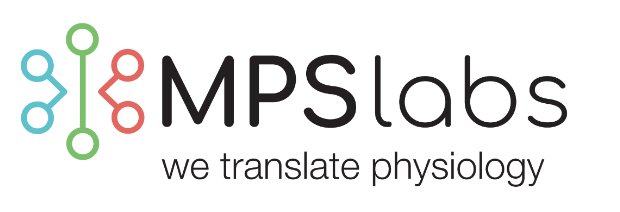Innovating with Microfluidic Organ-on-Chips
The Liver Ring Trial leverages TissUse’s cutting-edge HUMIMIC organ-on-chip technology, which has been central to the development of the Liver MPS. “Our microfluidic platform is not just about simulating liver functions; it’s about creating a more holistic organ-to-organ interaction, thereby offering a more accurate representation of human physiology,” stated Dr. Reyk Horland, CEO at TissUse.
Central to this trial is the computational modeling expertise provided by MPSlabs, a dedicated business unit from ESQlabs. Dr. Christian Maass, lead of MPSlabs and digital twins for organ-on-chips, remarked, “by integrating our advanced computational models with the Liver MPS, we are not only enhancing the system’s predictive accuracy but also setting new standards for clinical translation.”
Building on Regulatory Milestones
This initiative follows the successful inclusion of MPS data in regulatory filings e. g. Inipharm’s liver MPS model for NASH (non-alcoholic Steatohepatitis). With the Liver Ring Trial, the consortium aims to provide more confidence to use MPS data for regulatory submission and, ultimately, support decision making.
Guidance for Groundbreaking Research
Guided by the insights and advice from the European Medicines Agency (EMA) and the EU Reference Laboratory for alternatives to animal testing (EURL ECVAM) of the European Commission’s Joint Research Centre (JRC), the Liver Ring Trial aims to refine its methodology and expand its application. “We are at a pivotal moment in non-clinical drug assessment, and the support from ECVAM and EMA are invaluable in directing our efforts,” expressed Reiner Class, Associate Director, and team leader in the in vitro ADME team at UCB and initiator of the Liver Ring Trial.
About the Collaborators
TissUse is a Berlin, Germany-based, biotechnology company pioneer in the field of organ-on-chip technology, committed to developing sophisticated in vitro systems that mimic human biology. ESQlabs specializes in computational modeling, offering innovative solutions to bridge the gap between in vitro and in vivo studies.
TissUse has developed a unique “Multi-Organ-Chip” platform that provides unparalleled preclinical insight on a systemic level using human tissues. This enabling technology platform consists of a miniaturized construct that closely simulates the activity of multiple human organs in their true physiological context. TissUse’s Multi-Organ-Chips provide a new approach to predict, for example, toxicity, ADME profiles and efficacy in vitro, reducing and replacing laboratory animal testing and streamlining human clinical trials.
TissUse’s Multi-Organ-Chips have been utilized in a large variety of applications including drug development, cosmetics, food and nutrition and consumer products since 2012.
Led by Dr. Christian Maass, MPSlabs is a dedicated research and business unit situated under the umbrella of ESQlabs, led by CEO Dr. Stephan Schaller. MPSlabs spearheads the development of digital twin platforms for organ-on-chip and micro-physiological systems, bringing invaluable expertise to projects that require advanced simulation and modeling capabilities.
ESQlabs, led by CEO Dr. Stephan Schaller, offers modelling and simulation solutions in the field of pharmacokinetic/pharmacodynamic and PBPK modeling, as well as physiology-based quantitative systems pharmacology. It relies on the open source OSP Suite, to which it actively participates to the user-community and contributes to development. Using the OSP Suite, ESQlabs currently offers various services, including model building development and refinement, data integration, and consulting for clients in the life sciences and pharmacology fields. ESQlabs has a team of about over 30 employees scientists with extensive expertise in areas such as modeling, statistics, pharmacology, and software development. The application scope and user base of the OSP Suite for creating digital representations of human biology is constantly growing. Principial Scientist Christian Maass, PhD, is leading the platform development for digital twins for organ-on-chip and micro-physiological systems, whose expertise will be essential in the project.
UCB is a Brussels, Belgium-based global biopharmaceutical company focused on the discovery and development of innovative medicines and solutions to transform the lives of people living with severe diseases of the immune system or of the central nervous system.
Contact Information
Christian Maass, PhD
BU Lead MPSlabs
Christian.maass@esqlabs.com
[1] Servier Press Contact : presse@servier.com

